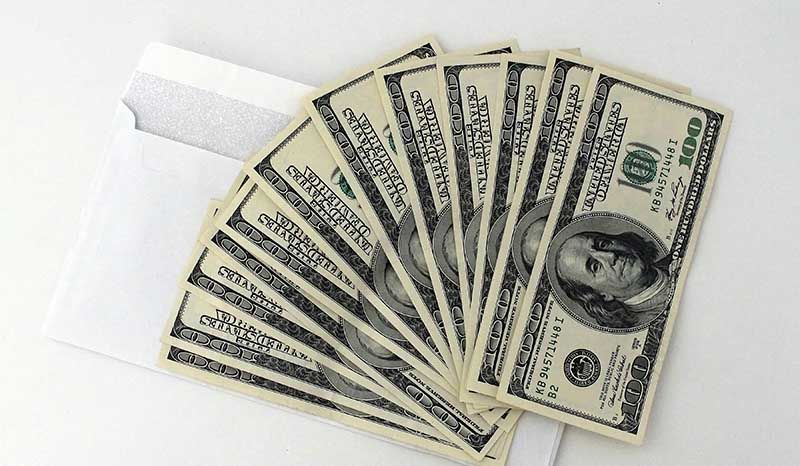How Does Quick Cash Loans Work?

Quick Cash Loans. In times of financial strain or unexpected expenses, quick cash loans can provide a lifeline to individuals in need of immediate funds. These loans offer a swift solution for addressing short-term financial needs, but it’s essential to understand how they work before considering one. In this article, we’ll delve into the mechanics of quick cash loans, exploring the application process, eligibility criteria, repayment terms, and important considerations.
What are loans for quick cash loans?
Payday loans, short-term loans, cash advances, and quick cash loans are other names for small-dollar loans that are usually returned quickly—often on the borrower’s subsequent payday. These loans are intended to give those who are experiencing short-term financial difficulties—like unforeseen medical costs, auto repairs, or other emergencies—quick access to money. Quick cash loans, in contrast to traditional bank loans, usually feature less stringent eligibility standards and a simplified application process, which enables those with bad credit or little financial history to apply
Application Process: Borrowers can obtain funds immediately in times of need thanks to the quick and easy application process for quick cash loans. Borrowers can typically apply in person at a storefront lender or online for a quick cash loan. Basic financial and personal information, such as identity, proof of income, and banking information, are usually required for the application. Many quick cash lenders offer loans without strict credit standards, but some may still run a credit check or demand collateral for secured loans.
The qualifying conditions for quick cash loans may differ based on the lender and the nature of the loan, but generally speaking, they consist of:
- Age: In order to be eligible for a fast cash loan, borrowers must normally be at least 18 years old.
- Income: To make sure applicants can repay the loan, lenders may need documentation of a consistent source of income, such as a job or government assistance.
- Bank Account: In order to deposit loan cash and make repayments easier, borrowers frequently need to have a current checking or savings account.
- Residency: In order to be eligible for a fast cash loan, borrowers may be required to submit documentation of their address, such as a utility bill or lease.
- Identity: In order to confirm a borrower’s identity, lenders may ask them to present a legitimate form of identification, such as a passport or driver’s license.
The lender will assess the application and decide whether to grant the loan if the borrower provides the necessary data and satisfies the eligibility requirements.
Interest Rates and Repayment Terms: Due to the lender’s risk and the borrower’s desire for quick access to funds, quick cash loans usually have high interest rates and short repayment terms. Quick cash loan interest rates might differ significantly based on the lender, the borrower’s creditworthiness, and state laws. To comprehend the entire cost of borrowing and make sure they can afford the repayments, borrowers should carefully analyze the details of the loan agreement, including the interest rate, fees, and payback schedule.
Unlocking the Secrets of Quick Cash Loans:
Quick cash loans usually have short repayment terms, of a few days to a few weeks. Typically, borrowers must return the entire loan amount—including fees and interest—by the deadline indicated in the loan agreement. For an additional fee, certain lenders may provide the opportunity to roll over the loan or extend the repayment term; however, this can result in additional expenses and should be handled carefully.
Crucial Points to Remember:
Prior to obtaining a fast cash loan, it’s crucial to think about the following:
- Cost: Quick cash loans have high interest rates and other costs that can quickly mount up, making them costly. In addition to carefully weighing their options, borrowers should consider other options include borrowing from friends or family, settling with creditors, or contacting neighborhood organizations for support.
- Ability to Repay: Applicants should only obtain a fast cash loan if they are certain that they will be able to return it in full and on schedule. If you don’t pay back a fast cash loan, the lender may take legal action against you, charge you more, and harm your credit.
- Alternatives: Borrowers should look into other funding options before turning to a fast cash loan, such as credit cards, personal savings, or installment loans with better terms. To address underlying financial concerns and stay away from high-cost borrowing, they might also think about contacting charitable groups for financial counseling or support.
To sum up, fast cash loans can be an easy and accessible way to meet urgent financial demands, but there are significant dangers and expenses associated with them that prospective borrowers should carefully weigh. In order to make informed judgments and steer clear of potential pitfalls when applying for quick cash loans, borrowers should be aware of the application procedure, eligibility requirements, repayment terms, and other pertinent information. Before deciding to borrow money through these expensive lending products, it’s critical to consider the advantages and disadvantages of quick cash loans and look into other choices.





